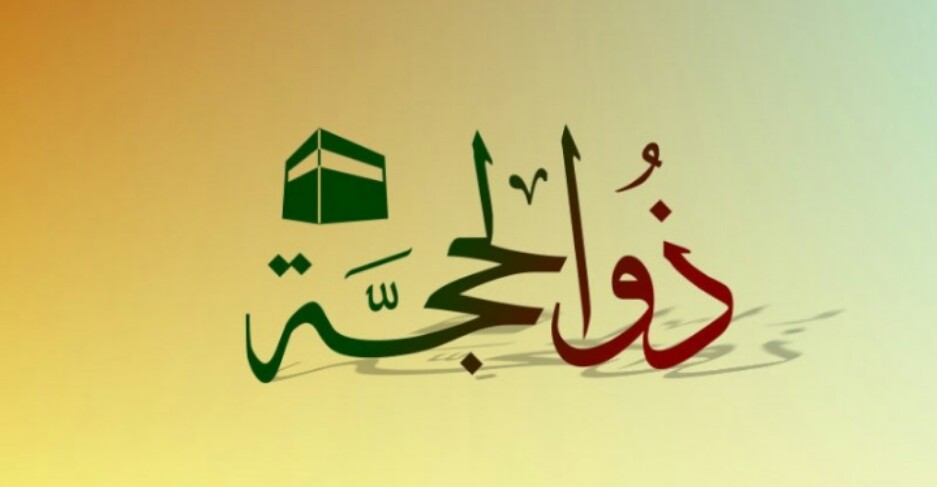By : Ali Farkhan Tsani, Senior Editor of MINA News Agency
The meaning of Dzulhijjah (Arabic) linguistically, consists of two words, namely Dzul, which means owner, and Al-Hijjah which means pilgrimage.
It is named the month of Dzulhijjah, the owner of the pilgrimage, because this month the pilgrimage is performed in the holy land of Makkah Al-Mukarramah.
The Arab population, since the days of ignorance, has performed the pilgrimage in the month of Dzulhijjah. They perform the pilgrimage as a form of preservation of the teachings of their ancestors Prophet Ibrahim ‘Alaihis Sallam.
Also Read: Verses of the Universe in Gaza: The Unyielding Light of Faith
According to Dr. Mohamed Sabry Abdel-Rahim, senior scholar of Daar Al-Iftaa Egypt, Dzulhijjah was named since around 412 AD during the time of Kilab bin Murrah, the fifth grandfather of the Prophet Muhammad sallallaahu ‘Alaihi Wasallam. (el-Balad, 12/8/2018).
The Arabs of the time of ignorance performed the pilgrimage in this month.
However, many deviations occurred, including mixing with custom and shirk.
The idol worshipers at that time put statues around the Kaaba, and some also put pictures on the walls of the Kaaba. Then they performed tawaf around him.
There are even those who are naked around the Kaaba. They think that being naked before God is a symbol of self-purity, leaving the world, like a baby is pure when it is born without sin.
Also Read: Prophet Sulaiman Alaihi Salam, the Greatest Muslim King of All Time
Then the procedure (manasik) was straightened out by the Hajj rituals of the Prophet sallallaahu ‘alaihi wasallam.
Until now, millions of Muslims from all over the world perform the pilgrimage in the month of Dzulhijjah.
Dzulhijjah also includes the month of Hari Raya for Muslims, in addition to the holy month of Ramadan.
As stated by the Prophet sallallaahu ‘alaihi wa sallam:
Also Read: Imaam Yakhsyallah Mansur: Surah At-Tin Indicates the Command to Liberate Al-Aqsa
شَهْرَانِ لاَ يَنْقُصَانِ، شَهْرَا عِيدٍ: رَمَضَانُ، وَذُو الحَجَّةِ
Meaning: “There are two months whose reward will not decrease. Both of them are two holy months, namely the month of Ramadan and the month of Dzulhijjah.” (Narrated by Bukhari and Muslim).
In this case, the Prophet sallallaahu ‘alaihi wasallam took the month of Dzulhijjah with the month of Ramadan, indicating that the reward for charity in these two months will increase.
In the month of Dzulhijjah, Muslims perform the pilgrimage, following the rituals of the Prophet’s pilgrimage, sallallaahu ‘alaihi wasallam.
Also Read: Imaam Yakhsyallah: Nurture Love for the Prophet, One Will Be with Whom One Loves
The peak is on the 9th of Dzulhijjah, when the pilgrims perform Wukuf in the Arafah field. Meanwhile, other Muslims outside of the Hajj pilgrimage, it is sunnah to perform Arafah fasting, the reward of which can erase the sins of two years, a year ago and a year to come.
Then, on the 10th of Dzulhijjah, all Muslims around the world celebrate Eid al-Adha or the Feast of Sacrifice.
Muslims who have the ability to slaughter sacrificial animals on the 10th of Dhulhijjah, and on the days of Tasyrik (11, 12, and 13 Dhulhijjah).
Hopefully, we can interpret this month of Dzulhijjah in our lives. Amen. (T/RE1)
Also Read: Friday Sermon: Emulating the Firmness of the Prophet in Struggle
Mi’raj News Agency (MINA)


































 Mina Indonesia
Mina Indonesia Mina Arabic
Mina Arabic